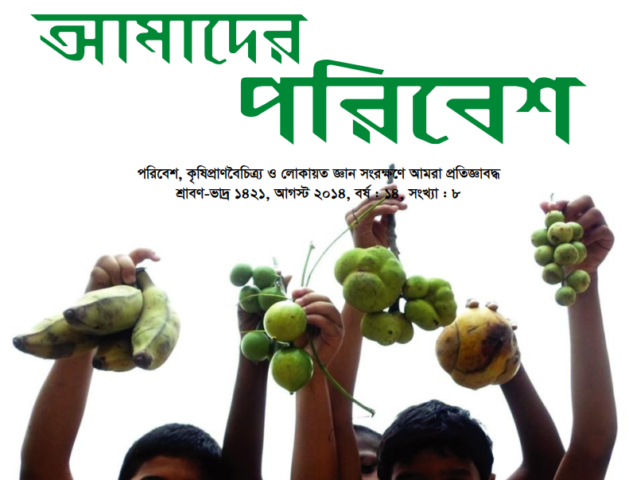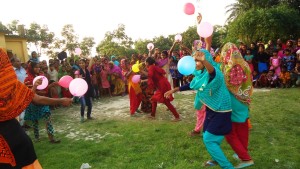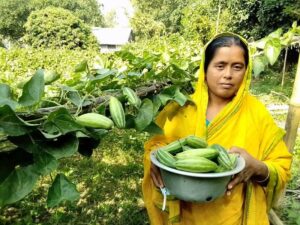Silvanus Lamin
Women play vital role in the progress and development of the state. Working in the grassroots level for more than two decades BARCIK has gathered some experiences and observed that women do more works than man. But women are still sidelined from any development initiatives and their contributions are not recognized. This discrimination towards women are seen widely today accelerating their problems as well as posing the edge of marginalization today. Since male dominates the society that is why the man led decision-making mechanism features women as household keepers. Their works compose of cooking, taking care of children and serving the unpaid labours of the families. Women labourers get lower wage than men although they do the same works and the underlying cause of this is the existing male dominated social beliefs and values where women are seen as sub-ordinates of men. Women can seldom participate in decision making process that relates their life and livelihood. Moreover, illiteracy, superstitions and lack of involvement in income generating activities has intensified their low status in the family and society. It has been seen that in Bangladesh women and young girls are more disadvantaged than men in their access to education, employment, services and entitlements. Women are often side-lined and excluded in all social, familial, economic and even political decision-making process. Problems such as violence against women, early marriage, eve-teasing, lack of women’s access to decision making process, controlled mobility, women harassment and lack of access to family property are very common in the country. It is needless to say that in order to achieve the SDGs in Bangladesh gender equality and women empowerment is required.
There exist some social and family restrictions on the upbringing of girls and boys from childhood. Over the centuries, differences in food, education, work, movement, speech, and entertainment between men and women have created divisions and inequalities. This politics of socially constructed divisions has given rise to inequality in the development of human beings, in the family, in the society and in the state. However, gender concept is the role and behavior of socially created men and women. This discriminatory concept is nurtured by the family, educational institutions, government policy formulation and implementation programs, the media, the law and the judiciary as well as the prevailing rules.
Gender equality is a holistic approach to treating women and men equally. So that no one is left behind. But what do we see in real life? Women are sidelined and excluded from all sorts of development works, decision making mechanism and economic activities. The findings from various studies show that 98 percent of men’s work is added to GDP; at that time, only 48 percent of women’s work was being added to the GDP. But if the households’ works are economically measured the contribution of women in GDP would be higher than men. On the other hand, women’s movement and choices are controlled and decided by the male members of the families. Besides, they always become victims of all sorts of violence. Thus, it has been seen that women and girls are facing eve-teasing, physical assault and rape in their day to day life. They are beaten for dowry, they are forced to sit for early marriage. Such reports of violence are seen in both print and electronic media every day.
At present gender perspective analysis is very important in measuring human development in a country. It is an essential measure of overall development and progress. If violence against women continues, women are excluded from all economic development, equal opportunity is not given to them and women education and movement is restricted it will hinder the progress and development of our country in spite of the increase in per capita income. Besides, Bangladesh will face difficulty to achieve the SDG goal (The goal no-5 of SDG focuses on providing women and girls with equal access to education, health care, decent work, and representation in political and economic decision-making). Therefore, gender equality is very important and a key strategy for ensuring sustainable development in the country.
However, as a development organization BARCIK is currently facilitating different projects in its working area focusing on ensuring gender equality in the family and society. Gender is inbuilt in all projects that BARCIK facilitates in different areas. Through those project BARCIK organizes, meetings, workshops, seminars, trainings, dialogues and campaigns emphasizing on the importance of gender equality in the family and society. The trainings and workshops help the organization to instil the education on gender role, equality among the participants (both men and women). Besides, the seminars, campaigns and dialogues help the organization to focus on women contribution, women violence and problems associated with gender relations. Besides, through these activities BARCIK intends to facilitate for ensuring that democratic practices in family and society levels where women have the platform to have their ‘say’ in any sort of family and society level concerns rather than being passive participants. BARCIK believes if gender equality prevails and is practiced it will increase the status, dignity of women in the society. The theme of international women day in 2022 is ‘Gender equality today for a sustainable tomorrow’. Giving space for women to raise their voice and attain their rights as well as recognizing their roles in the society and state will pave way for promoting a gender sensitized society where gender equality will prevail in family, society and even in state level. This will accelerate women empowerment and ensure development which is sustainable.




